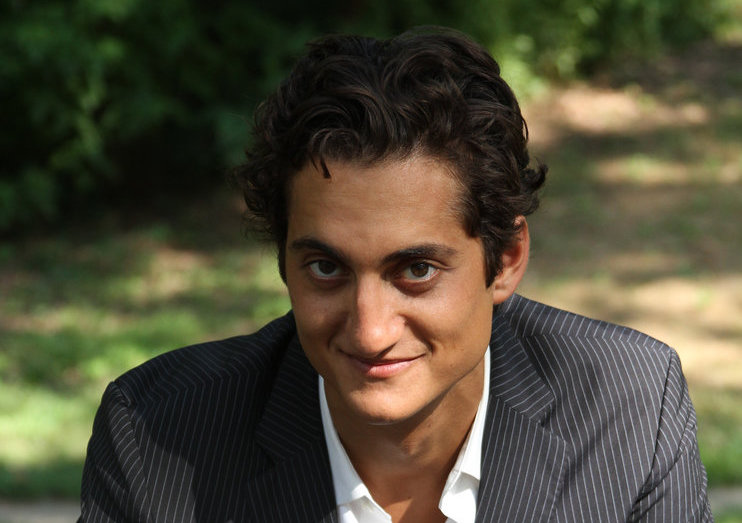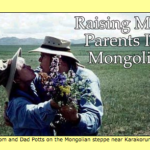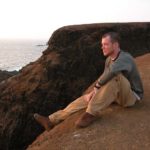Adam Valen Levinson is the author of The Abu Dhabi Bar Mitzvah (W.W. Norton, 2017), dubbed “Eat, Pray, Laugh” by The New York Times. He’s an affiliate of the Middle East Institute, and a Fellow at the Center for Cultural Sociology at Yale University, where he studies senses of humor as a key to cross cultural understanding. In 2018, the International Society of Humor Scholars (a real thing!) granted him their Young Scholar Award. All of his stories are true. He usually lives in New York.
How did you get started traveling?
Like all Jewish grandparents, my mother’s folks had a choice between moving to California or Florida when they retired. Luckily for me, they ended up in San Diego — and my parents brought me out to meet them (i.e. have them take care of me while they went swimming) when I was about three weeks old.
My grandma’s 99 now, still sharp as a tack — and I’ve loved feeling like California was a kind of home away from home. The cultural difference between West and East is real. Just being exposed (and feeling connected) to different values, different priorities, different ways of organizing a life — that’s the heart of traveling for me. That’s what you can try to bring home and synthesize, learn from. (Hey, the surf isn’t even half bad in Queens!)
How did you get started writing?
I think I always felt a need to get things out, you know? That whatever I was thinking, experiencing, feeling — it hadn’t really done its job unless I could share it with other people. It’s a dangerous impulse, like the “splinter of ice in the heart of every writer” as Graham Greene put it, and I guess I had it. My family encouraged it, too. Grandma’s an author, mom has always written poetry, my dad’s a (contemporary classical) composer — it was a family where people I admired encouraged playing with ideas and trying to express them. I was always really daunted by their successes, though. I don’t think I would’ve kept writing anything at all unless it was a compulsion, a need to “find words” for ideas so that they could stop bouncing around in my head.
What do you consider your first “break” as a writer?
I won $25 once in a writing competition in San Diego — about freaking out seeing sharks in the water, frantically swimming towards shore, running out past a group of small children, and hearing them yell, “look, dolphins!” I must’ve been about ten, but that’s basically what my first book was about too — reacting to fears that were never really there. Super important (if it’s something you care about) to see that other people might actually react to the things you’re thinking.
As a traveler and fact/story gatherer, what is your biggest challenge on the road?
That Graham Greene “splinter” is the toughest thing, I think — in writing and in life in general. I really, really want to be in the moment, to be meeting people and connecting with them with no caveats. But then there’s the bird’s eye writerly / documentarian / journalistic instinct to stand back. It’s always a different mindset to comment than to live, to critique than to create. That’s the gap between the work and life — and I’m rarely sure exactly where I want to stand.
What is your biggest challenge in the research and writing process?
Who knows how much is too much? I often feel like everything is connected to everything — so everything is technically relevant to everything, at some level. Like, maybe knowing that that stone in that building was put there by that guy who happened to be married to the daughter of a guy that made that other building far away — maybe that’s the detail that’ll make everything crystallize, or will make some reader connect in some awesome new way. But then, I’ve also got that impulse to tell everything as straight as possible, as unadorned with details outside the moment I’m trying to (re)create. Research triggers a lot of Goldilocks moments for me.
What is your biggest challenge from a business standpoint?
Self-promotion. I think basically everyone has something to say — and if I had time, I’d want to hear it. So I’m a bit unconvinced in the advertising needed to make “brand” many writers really need to sustain.
I also think it’s often hard to pitch the ideas you actually want to make, whether it’s an article or a book or a TV show or anything else. Like, the project is one thing, and the “pitch” is this totally separate animal, that might be a bit related to what you really mean, or not at all.
Have you ever done other work to make ends meet?
Sure thing. Worked for a university in Abu Dhabi, played trumpet in the UAE philharmonic, bar tended, sold art in Alaska, bar tended some more, did stand up comedy (not great for end-meeting), tutored high schoolers in Shanghai. I’m a doctoral fellow at Yale now, slowly getting even with American universities.
What travel authors or books might you recommend and/or have influenced you?
Pico Iyer’s first, Video Night in Kathmandu, is something I feel captures both the spontaneous, emotional core of traveling, and the nuanced articulation of complicated ideas that writing as a medium is uniquely able to capture. (Pico is also a saint, and was very encouraging to me in the earlier stages of attempting my own book.)
What advice and/or warnings would you give to someone who is considering going into travel writing?
I think you have to really ask why. That’s silly, I know — you should maybe do that with anything. But travel writing is a sneaky beast. For people who love travel and love writing, travel + writing will always be a third thing, different from either. You’ve gotta love this bizarre cocktail for itself, as a thing itself, and not only want to combine two separate pieces.
What is the biggest reward of life as a travel writer?
“The greatest thing by far is to be a master of metaphor.” At least, that’s what Aristotle said once. How’s that for pretentious! but hey, I really think he has a point — and travel writing is maybe the best training to practice seeing these “intuitive perceptions of the similar in the dissimilar.” (West Coast and East Coast and No Coast have more in common than it might appear.) So many strange things begin to feel so similar in their own context.





